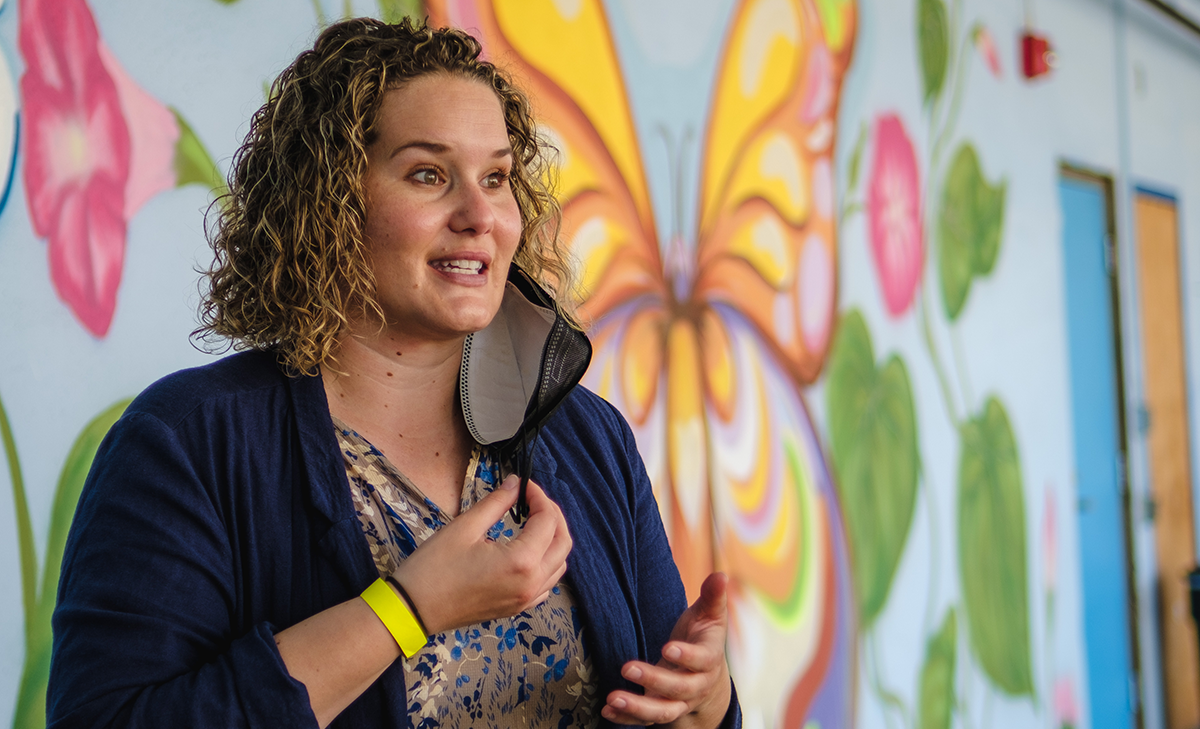 © USA for UNHCR/Nicholas Feeney
© USA for UNHCR/Nicholas Feeney
San Diego Steps Up for Refugees and Asylum-Seekers
Each year, more than 50 million people cross between San Diego and Tijuana — making it one of the busiest land border crossings in the world. Thousands cross the border every day for work, school, appointments and vacation. But for asylum-seekers fleeing from violence and persecution in their home country, the border separates them from safety and security they hope to find in a new country.
Since the implementation of two U.S. asylum policies — the Migrant Protection Protocols, often referred to as the “Remain in Mexico” program, and Title 42, a provision of U.S. health law that allows the expulsion of asylum-seekers at the U.S. border — asylum-seekers have faced numerous challenges in seeking safety. Despite these challenges, community organizations and shelters in San Diego are stepping up to support asylum-seekers and refugees fleeing across the US-Mexico border.
Jewish Family Service (JFS) in San Diego opened its shelter in 2018 and has relied on a strong collaborative relationship with UNHCR, the UN Refugee Agency, to support people fleeing war, violence and persecution. The shelter welcomes anywhere from 80 to more than 250 people a day and families receive a safe place to rest, three meals a day, medical care and “know your rights” training.
“As an immigration attorney, being able to take a step back and realize that legal needs are just a slice of what a person may need… it has been an incredible experience to be able to serve and assist someone who is a new arrival to our country, said Kate Clark (pictured above), Senior Director of Immigration Services at JFS in San Diego, California.
MAKE Projects, a local non-profit in San Diego, is ensuring that refugees and immigrants have the opportunities and work experience they need to prepare for their futures while growing roots in their community. MAKE Projects operates an urban farm, an outdoor restaurant, caters events and runs a neighborhood CSA — employing hundreds of refugee and immigrant women and youth.